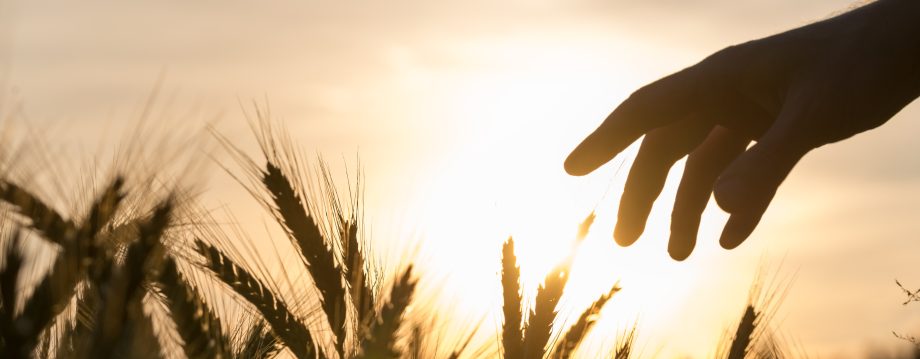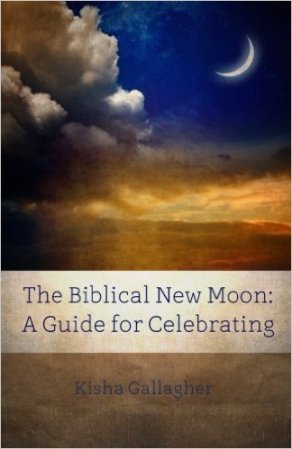Ps. 145:21 (NASB) My mouth will speak the praise of the LORD, And all flesh will bless His holy name forever and ever.
In this week’s Torah portion, Beshalach[1], we read the Song at the Sea; and in the haftarah, the Song of Deborah. Because of this, Jewish tradition dubs this Shabbat: Shabbat Shirah, or the “Sabbath of Song.” In each of these songs, YHWH is highly exalted as Israel’s deliverer. The enemy has been defeated, and we rejoice!
Beshalach always coincides with Tu B’Shevat (Shevat 15th), or the New Year for Trees. There is an interesting connection between the splitting of the Reed Sea and trees, found here. As the sap begins to rise in the trees so that they blossom and bud with new life, the birds that nest in their branches begin their migrations. Up to 500 million part the sky as they fill Israel’s air space twice a year, with the spring movement beginning in Shevat (February/March).[2] The birds flow and move to the beat of their own moedim, retelling their own type of exodus.
Jer. 8:7 (KJV) Yea, the stork in the heaven knoweth her appointed times (moedim); and the turtle and the crane and the swallow observe the time of their coming; but my people know not the judgment of the LORD.
Along their journey, they fill the air with something else: songs of praise! Their tiny lungs fill with the air of heaven to release it in a song like no other creatures on earth. Their chirps, squawks, tweets, and peeps harmonize to glorify the LORD. For this reason, a custom developed in Ashkenazi communities to feed these praise singers on Shabbat Shirah.[3]
Ezek. 17:22-24 (TLV) Thus says Adonai Elohim: “I, even I, will take from a sprig from the top of the lofty cedar and will plant it. I will crop off a tender twig from the topmost of its young shoots, and I will plant it on a tall and prominent mountain. 23 I will plant it on Israel’s high mountain. It will bring forth branches, bear fruit and be a magnificent cedar. Birds of every kind will nest under it—they will nest in the shade of its branches. 24 Then all the trees of the field will know that I, Adonai, have brought down the high tree, exalted the lowly tree, dried up the green tree, and made the dry tree flourish. I, Adonai, have spoken and I will do it.”[4]
The Song of the Sea is read every morning in the prayer service (Shacharit) in the Pesukei D’Zimrah, or Verses of Song. The Shacharit begins with blessings and psalms specifically chosen to invoke kavanah or focus and awe for the Holy One in the person praying. The Pesukei D’Zimrah is full of songs and praise, which prepares one to recite the Shema and Amidah. “Know before Whom you stand.”[5] Only after acknowledging and praising Adonai as the Holy One of Israel, can one properly seek Him for requests and desires.
There is another possible meaning of zimrah (song/melody) that emphasizes this point and connects it to the month of trees, in which Beshalach and the Song of the Sea is read. The Hebrew root zemer means “to prune.”[6] The psalms, including the Song of the Sea, are verses of pruning! These melodies act like a type of pruning shear that cuts off wild and unruly growths from one’s tree or mind/heart. Healthy branches receive more nourishment, and hindrances to heartfelt prayer are removed. In this way, the songs and melodies of Scripture (and even modern worship songs/music) lift, align, and unify one with Adonai and fellow worshipers.
This is even figured on the Torah Scroll. The Song at the Sea is written in a brickwork pattern of three interlocking columns, which makes it stand out on the leaf (page of Torah.)[7] This arrangement mimics the congealed columns of water and the Children of Israel walking between them on dry ground, united or interlocked. It is one of only two places in the Torah written in a different layout. The other is the Song of Moses. (Dt. 32) The Song of Deborah follows this same brickwork pattern. (See examples below.)
The imagery of the early spring season in Shevat, birds migrating through the Land, splitting the heavens with wings and song, the Torah cycle retelling the exodus and the parting of the sea in the month of trees, all proclaim a loud message. Can you discern the bird’s song? It’s the same message from the beginning. Moses and the children sang it at the sea. Deborah recalled it in Judges 5. David repeats it in Psalm 68. Every morning it is recounted in the synagogue. The last book, Revelation, has flying angels proclaiming it to the whole earth.
Ex. 15:1-2 (NASB) Then Moses and the sons of Israel sang this song to the LORD, and said, “I will sing to the LORD, for He is highly exalted; The horse and its rider He has hurled into the sea. 2 “The LORD is my strength and song, and He has become my salvation (Yeshua); This is my God, and I will praise Him; My father’s God, and I will extol Him.”
Jdg. 5:1-4, 31 (NASB) Then Deborah and Barak the son of Abinoam sang on that day, saying, 2 “That the leaders led in Israel, That the people volunteered, Bless the LORD! 3 “Hear, O kings; give ear, O rulers! I—to the LORD, I will sing, I will sing praise to the LORD, the God of Israel. 4 “LORD, when You went out from Seir, when You marched from the field of Edom, the earth quaked, the heavens also dripped, even the clouds dripped water.” … “Thus let all Your enemies perish, O LORD; but let those who love Him be like the rising of the sun in its might.”
Ps. 68:1-4 (NASB) For the choir director. A Psalm of David. A Song. Let God arise, let His enemies be scattered, and let those who hate Him flee before Him. 2 As smoke is driven away, so drive them away; As wax melts before the fire, so let the wicked perish before God. 3 But let the righteous be glad; let them exult before God; Yes, let them rejoice with gladness. 4 Sing to God, sing praises to His name; lift up a song for Him who rides through the deserts, whose name is the LORD, and exult before Him.
Rev. 14:6-8 (NASB) And I saw another angel flying in midheaven, having an eternal gospel to preach to those who live on the earth, and to every nation and tribe and tongue and people; 7 and he said with a loud voice, “Fear God, and give Him glory, because the hour of His judgment has come; worship Him who made the heaven and the earth and sea and springs of waters.” 8 And another angel, a second one, followed, saying, “Fallen, fallen is Babylon the great, she who has made all the nations drink of the wine of the passion of her immorality.”
This Shabbat Shirah, I encourage you to read all the above chapters. (Ex. 15, Jdg. 5, Ps. 68, Rev. 14) See how many thematic connections you can make, and declare The Message to others. The result should cause great jubilation, praise, and awe of the Almighty.  If it doesn’t, perhaps one needs to undergo the pruning shears first. To align one’s heart with Adonai, look to the birds. Fill your lungs – even if they feel low on breath– with air and sing, chirp, and tweet about His Greatness. This will lift you up on wings like an eagle, deliverance that only God can achieve.
If it doesn’t, perhaps one needs to undergo the pruning shears first. To align one’s heart with Adonai, look to the birds. Fill your lungs – even if they feel low on breath– with air and sing, chirp, and tweet about His Greatness. This will lift you up on wings like an eagle, deliverance that only God can achieve.
It is interesting to note that in Hebrew it says that Moses and the sons of Israel will sing, az yashir, but the portion of the song attributed to Miriam and the women is in the present tense, plural imperative: shiru l’Adonai, sing to Adonai (now).
Ex. 15:20-21 (NASB) Miriam the prophetess, Aaron’s sister, took the timbrel in her hand, and all the women went out after her with timbrels and with dancing. 21 Miriam answered them, “Sing to the LORD, for He is highly exalted; the horse and his rider He has hurled into the sea.”
I’ll never forget an evening of prayer with some local women a few years ago. We had just finished a spiritually tough, but encouraging Bible study on a section in the Book of Revelation. I had shown everyone a slide of an artist’s depiction of the harlot riding the red, seven headed beast with four shady horse and riders in the backdrop of smoke and chaos. The picture spoke a thousand words of defeat and oppression. The point of the lesson was overcoming this false image in our own hearts. (See The Scarlet Harlot and the Crimson Thread by Dr. Hollisa Alewine.)
When we prayed, the Spirit was so strong, flowing freely in our midst. Suddenly, my mind was flooded with images of the Song at the Sea. The Words of triumph and joy were so vivid that I began to jump as I recounted Miriam’s words: “Sing to the LORD, for He is highly exalted; the horse and his rider He has hurled into the sea.”

Beloved, we sing because He has already overcame the world. Though Pharaoh or the Whore of Babylon is riding close at our heels, we already know the end of the story. The horsemen, their chariots, and beasts of burden are stopped with a single blast of the Almighty’s nostrils. Their wheels will get stuck in the very mud in which they wallow. So, don’t wait to sing. Like Miriam and the great host of women, Sing now!
Ps. 68:11-12 (NASB) The Lord gives the command; The women who proclaim the good tidings are a great host: 12 “Kings of armies flee, they flee, and she who remains at home will divide the spoil!”
Ps. 150:6 (NASB) Let everything that has breath praise the LORD. Praise the LORD!
[1]Exodus 13:17–17:16, Judges 4:4–5:31.
[2]https://www.birds.org.il/en/article-page.aspx?articleId=124 Retrieved 2/7/2020.
[3]There are several explanations given for this tradition. For example, see this article: https://schechter.edu/why-is-shabbat-shirah-for-the-birds-2/
[4]Mat. 3:31-32 (TLV) He presented to them another parable, saying, “The kingdom of heaven is like a mustard seed, which a man took and planted in his field. 32 It’s the smallest of all seeds; yet when it’s full grown, it’s greater than the other herbs. It becomes like a tree, so that the birds of the air come and nest in its branches.”
[5]This phrase is inscribed on the ark (that houses the Torah Scroll) in many synagogues. It is drawn from: Ex.3:4-6 When Adonai saw that he turned to look, He called to him out of the midst of the bush and said, “Moses, Moses!” So he answered, “Hineni.” 5 Then He said, “Come no closer. Take your sandals off your feet, for the place where you are standing is holy ground.” 6 Moreover He said, “I am the God of your father, the God of Abraham, Isaac and Jacob.” So Moses hid his face, because he was afraid to look at God. (TLV)
[6]For example, see The Seif Edition Artscroll Hebrew/English Siddur on Pesukei D’Zimrah.
[7]Torah scrolls are penned on kosher (clean) animal skins and spooled onto a wooden post called an Etz chayim or Tree of Life. The Torah Scroll has much in common with trees and people. Like a tree, it is alive, has leaves, and bears fruit. Like a person, it has a crown, wears a sash or belt and an outer garment, and has a yad or hand. For more, see The Unity of the Scroll.









